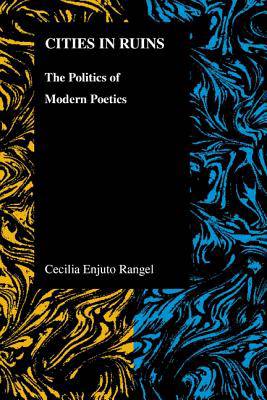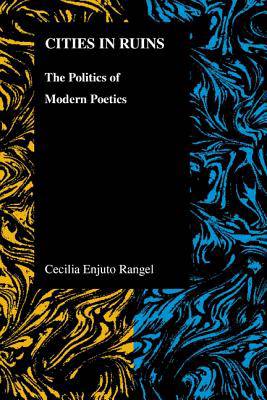
- Afhalen na 1 uur in een winkel met voorraad
- Gratis thuislevering in België vanaf € 30
- Ruim aanbod met 7 miljoen producten
- Afhalen na 1 uur in een winkel met voorraad
- Gratis thuislevering in België vanaf € 30
- Ruim aanbod met 7 miljoen producten
Zoeken
Omschrijving
The attacks in New York on September 11, 2001, and in Madrid on March 11, 2004, provoked diverse political reactions, but the imminence of the ruins triggered a collective historical awakening. In Cities in Ruins, Cecilia Enjuto Rangel argues that the portrayal in poetry of the modern city as a disintegrated, ruined space is part of a critique of the visions of progress and the historical process of modernization that developed during the nineteenth century and the first half of the twentieth century. Enjuto Rangel's study investigates the virtually unexplored map of modern ruins in modern poetry. She interprets modern poetry on ruins as a critique of both capitalist definitions of progress and the devastating effects of modern warfare. Furthermore, she argues that the representation of ruins provokes a "historical awakening" that empowers the text, and the reader, with political and historical agency.
Specificaties
Betrokkenen
- Auteur(s):
- Uitgeverij:
Inhoud
- Aantal bladzijden:
- 376
- Taal:
- Engels
- Reeks:
- Reeksnummer:
- nr. 50
Eigenschappen
- Productcode (EAN):
- 9781557535719
- Verschijningsdatum:
- 15/11/2010
- Uitvoering:
- Paperback
- Formaat:
- Trade paperback (VS)
- Afmetingen:
- 152 mm x 226 mm
- Gewicht:
- 612 g

Alleen bij Standaard Boekhandel
+ 152 punten op je klantenkaart van Standaard Boekhandel
Beoordelingen
We publiceren alleen reviews die voldoen aan de voorwaarden voor reviews. Bekijk onze voorwaarden voor reviews.







